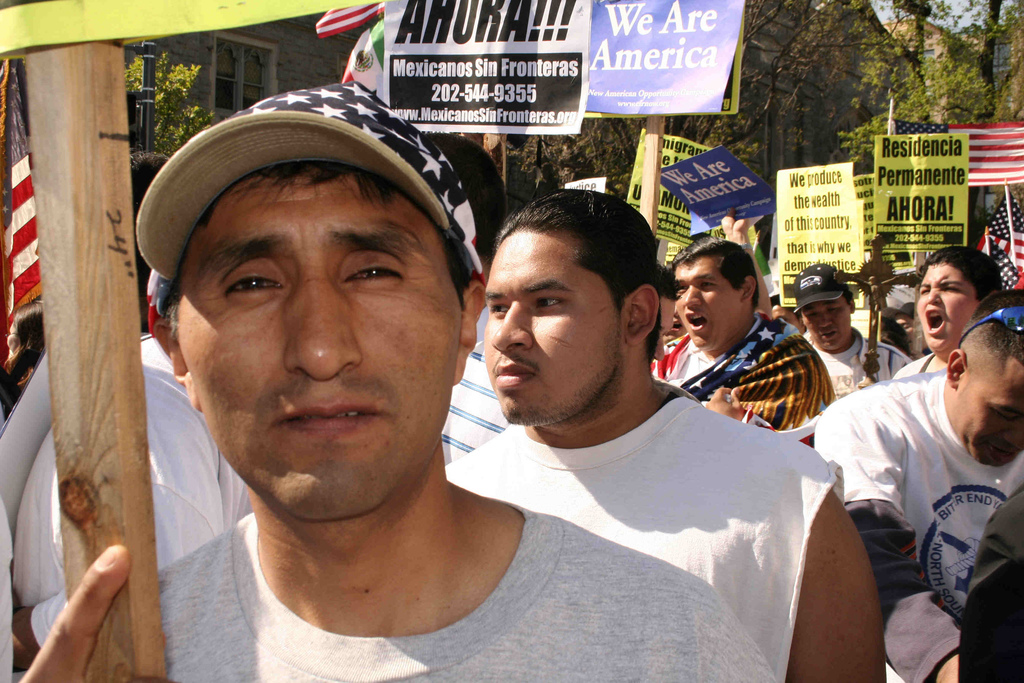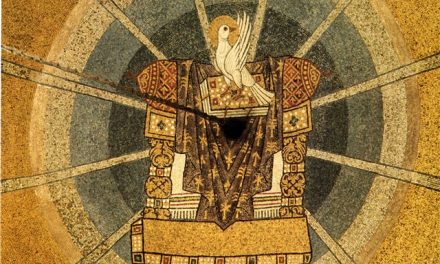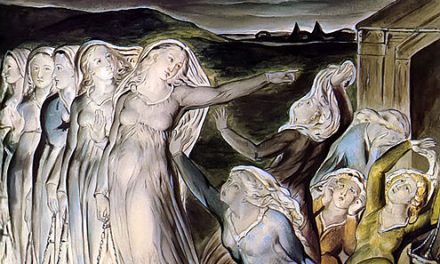As many news agencies have noted, catholicwomencare.org released a website and a statement giving voice to Catholic women across the ideological spectrum, who want to say that neither political party truly represents either Catholic teaching or women’s voices. I was one of the women who signed. In my post today, I’m blogging specifically about motherhood.
I found it fascinating that in the midst of that website being released, Pope Francis’ homily yesterday bypassed the more difficult discussion of the first reading (Ephesians 5:21-33, on household codes and the husband as the head of the wife) to focus on the gospel reading about the Kingdom of God as like yeast a woman mixed in with flour (Gospel: Luke 13:18-21).
Flour may seem rather innocuous, but the pope’s message contained contentious points. For some, one of the contentious points might be that of motherhood. Pope Francis says:
The Kingdom of God is like a mother that grows and is fertile, gives of herself so that her children have food and lodging, according to the example of the Lord. Today is a day to ask for the grace of docility to the Holy Spirit. Many times we are not docile to our moods, our judgements. ‘But I do what I want….’ The Kingdom does not grow in this way and neither do we grow.
Motherhood is an image that carries mixed messages for a variety of people – and for many reasons:
- Not all women are mothers.
- Images of birthing and labor can exclude adoptive mothers.
- Motherhood is the main image often used about women in the church.
- Motherhood emphasizes women’s roles, which seems objectifying. We can compare, for example, how often men are described as fathers. There is no document called “On the Dignity and Role of Men” that discusses fatherhood as a primary image or role in the way that “Mulieris Dignitatem” does.
- Focus on motherhood in the church can end up pitting stay-at-home moms and work-out-of-the-home moms…and from there degenerate into nasty debates about day care, how much people love their children, breast versus bottle, and all the other horrible parenting debates that exist.
- The image of docility that accompanies the pope’s depictions of motherhood – which seems to make motherhood (and women with it) seem passive – when in fact, I think it is far better to think of mothers as often being creative fighters, people who are actively engaged in theirs’ and their children’s world and seeking improvements in small and large ways.
For all that contestedness, motherhood remains an important locus for Catholic theology and social teaching. In a post-post-modernist world, gender remains contested and suspected, yet there remain real, gendered questions in play. Even when or where people would rather (and sometimes for very good theological reasons) drop gender from the picture to focus on humanity as a whole, or do away with categories of gender entirely, that tends to discount the experiences of millions of women around the globe – made most especially visible in their motherhood.
That is, the pope’s imagery speaks something that is truthful, even if it cannot be all-encompassing. Motherhood (biological or adoptive) is mysterious, and it does involve its inhabitants to confront their own selves and their own abilities to grow to include, and love, another human being who is not them. Not all women respond with growth, but most do, in a variety of ways.
Moreover, being docile to the Holy Spirit – which I might narrate as forgetting oneself in the Holy Spirit, in just the way that mothers often forget themselves for their children – is mysterious and various. It invites creativity wrought by love and contemplation of God. Forgetfulness is a difficult word to use, especially in an era when we focus on self-care – or in an era when helicopter parenting might seem to be a version of forgetfulness. I don’t want to avoid self-care, nor promote helicopter parenting as a way of forgetting oneself. Rather, my thinking is: what does it mean to get ecstatically caught up in contemplating Love, the Holy Spirit? If and when we are so caught up, we, and our parenting, is shaped and formed in ways that lead us in directions we might not have thought we could go. We can give up prestige at work because our children need someone to tuck them in bed. We learn about coding and princesses and baseball, even if we’re not personally interested, because we care about the people we are learning to love. If we have very little food, we can give up more of our share so our children have more. These are the kinds of ways that women across the globe experience and encounter motherhood.
Interestingly, the pope’s contrast point is a business model, one of the primary images of the church as it is practiced and discussed in the West – a business model that seeks efficiency and control. The Catholic News Agency reports that Pope Francis began with a rhetorical question:
What is the Kingdom of God? Well, perhaps the Kingdom of God is a very well-made structure, everything tidy, organization charts all done, everything and the person who does not enter (into this structure) is not in the Kingdom of God…
But the Pope goes on to reject that as a primary model. The Kingdom of God is not tidy, not composed of organization charts, and instead is best when all its people focus on the direction of the Holy Spirit – the mystery of how yeast and flour become bread, yet look nothing like bread when they start. So too, is the Kingdom of God (and this is my own take on it): it begins in small, perhaps even unrecognizable ways, but grows into something mysterious and capacious – not unlike the kind of mystery that a pregnant woman knows, or that a mother meeting her adoptive children a few hours at a time, might encounter.
It is the efficient and controlled structures that most people see of the church – and that parish administrators, pastors and bishops often emphasize. We might here consider Cardinal Avery Dulles’ ecclesiological models, including one he called the Institution. The church cannot be without its institutions and organizing structures, yet this should not be confused with “institutionalism,” which Dulles names as a system in which institutions are treated as the main point and purpose.
Dulles’ models did not include Church as Mother – maybe because in his day it was more presumed (cf Mater et Magistra) – though those mid-20th century images of mothers had some of their own difficulties.
What would it look like, though, to affirm motherhood in more varied ways and to follow the Holy Spirit in this meditation? I think that focus might not only balance the prevalent business model – but might also lead to practical action related to mothers who are members of the church – things like family leave, equal wages for equal work, a focus on good child care, preschool, and kindergarten, and a host of other communal supports for women. There might be diverse ways to bring about those goals – but this too, means following the Holy Spirit and thinking and acting like a mother.






This is a really interesting post. I agree that a focus on the creativity, unconditional acceptance, guiding wisdom, strong protection, and active caring of mothers is a fruitful line of thought. But I would also like to see (maybe part 2?) so much more of the other side of the coin. As you noted before, there is so much discussion of woman’s call to motherhood and so little of man’s call to fatherhood. What discussion there is tends to focus on men as protectors and providers in a way that emphasizes the business/institutional roles above all else. But fatherhood is so much more than that – it is caring, consoling, humbling, and self-sacrificing to depths that we rarely hear about. I think that in order for women’s strength to be realized, men need to recognize their own unique capacity for humility, caring, and dare I say even docility.